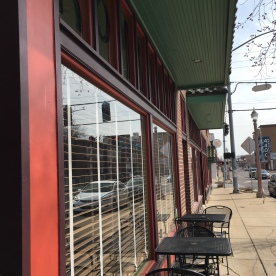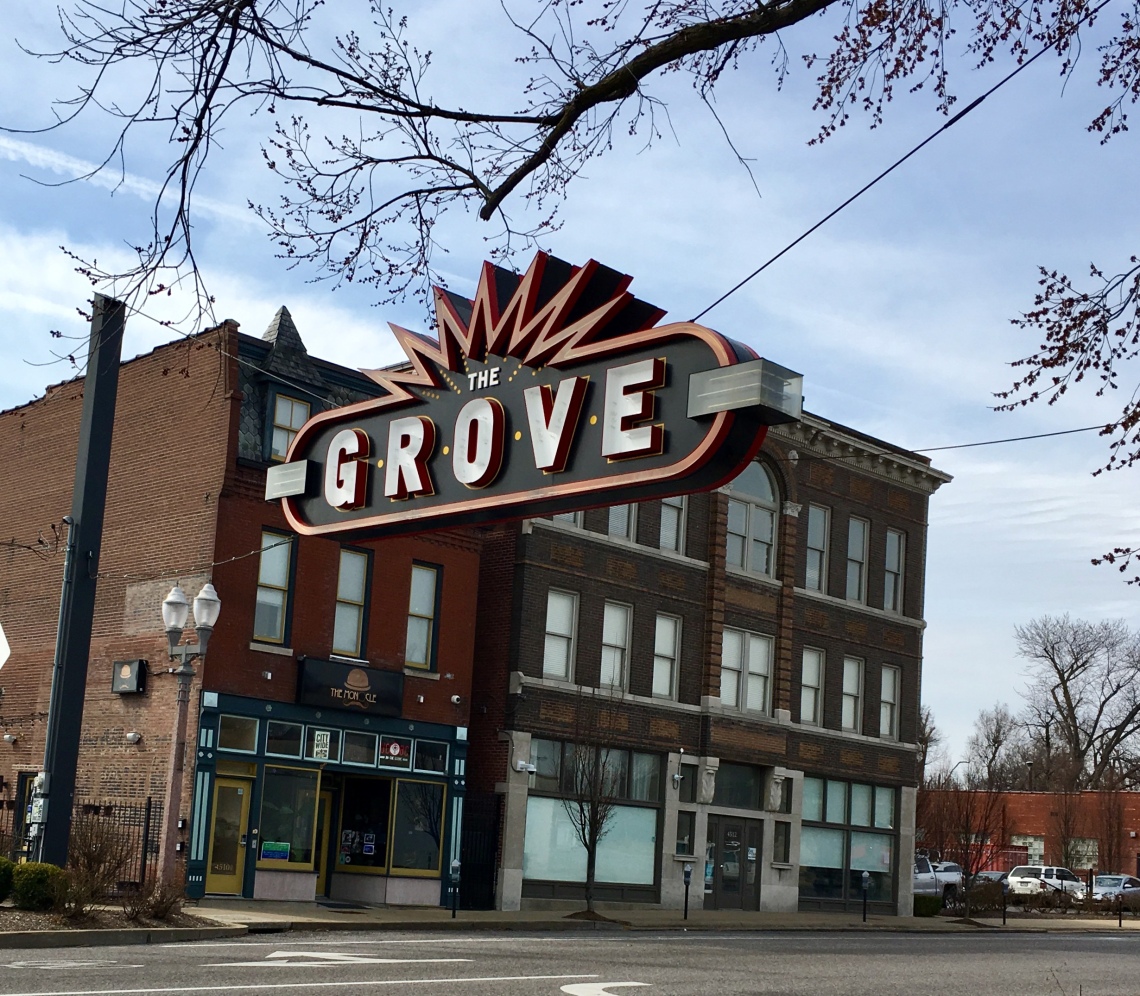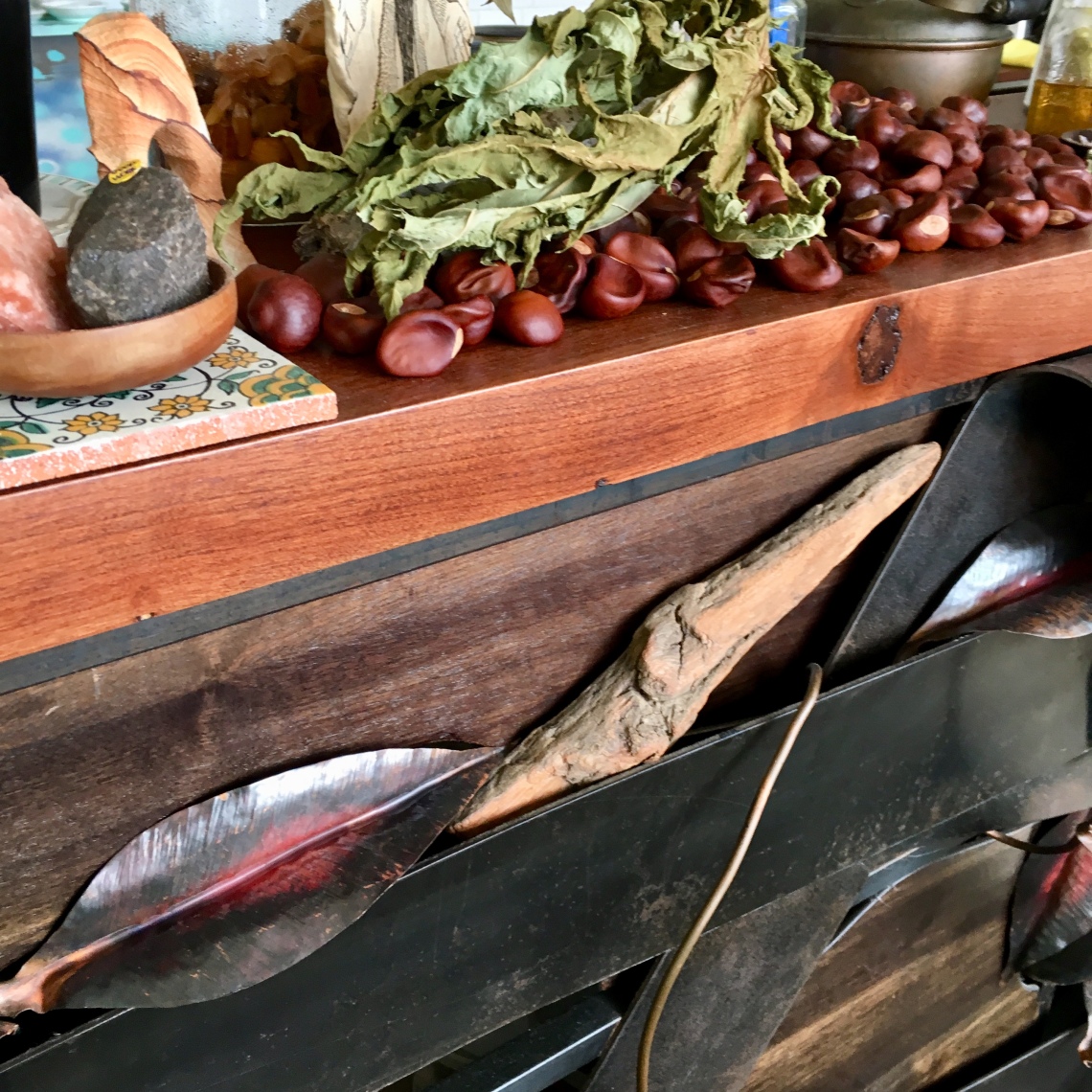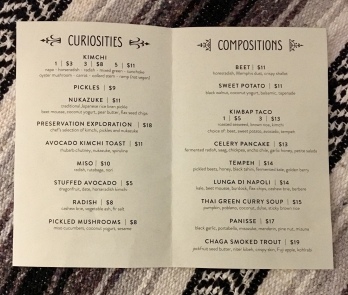By Jolee Keplinger (C’20)
Principia Center for Sustainability
Dining Services Liaison Officer
Confluence Kombucha isn’t simply a local restaurant that specializes in kombucha brewing. It’s a place that is passionately championing the local and sustainable food movement. It’s consciously crafted, seasonally changing, compositions are true works of art.

First, if you aren’t familiar with kombucha, I’ll give you a brief overview. Kombucha is typically green or black tea combined with yeast and sugar. This mix is set aside to ferment. This sweet and sour beverage is ancient, and is thought to have first been brewed in China. In the United States, kombucha has the reputation of being a fizzy health drink which makes an excellent alternative to soda. Currently, Kombucha is a huge trend, and it can be found in most grocery stores. Common brands include G.T.’s, Kevita, and Humm.

Even though kombucha is wildly popular these days, restaurants specializing in this fermented tea aren’t so common. I didn’t even know these places existed until I came across one in Chicago last year. I didn’t expect a restaurant dedicated to brewing kombucha would exist in the St. Louis area, but I was proven wrong. A few months ago, I randomly Googled something along the lines of “Kombucha Restaurant in St. Louis” and discovered Confluence Kombucha gastroLAB. This hidden gem has been located in The Grove entertainment district since 2016. (The exterior is a bit low-key, so it’s helpful to look for Urban Chestnut Brewery, and then look to the left.)

After doing a bit of research, I determined that Confluence is dedicated to doing things differently, and I thought this local business would make an interesting addition to the blog. This inspired me to set up a meeting with William Pauly, Confluence’s creative chef and owner.
Forage
Since William has a friend that clears overgrown plants at a nature reserve, he’s offered usable plants that are ideal for incorporating into the kombucha. In addition, common foraged foods that may appear on the menu include morel mushrooms, nettles, and wild greens.
Farm
Confluence offers only the best, locally sourced ingredients, which support small-scale farmers in Missouri and Illinois. William does not source the food from an average food service provider, such as Sysco, but instead, a farmer brokerage called Eat Here STL. This St. Louis-based brokerage works with farmers and producers, bringing the finest and freshest foods to local chefs. For example, ingredients could come from PrairiEarth Farm or DeManage Family Farm.
William described how a chef who started Eat Here STL had many connections with farmers, and decided to start a company. This chef wanted to make farm-to-table dining less complicated for restaurants. By doing this, restaurant owners like William don’t have to spend a lot of time sourcing local ingredients individually.
Feast
The culinary concoctions at Confluence are not only exceptionally creative, but are made predominately of wholesome, plant-based ingredients. In addition, these ingredients are grown sustainably, such as by following organic principles. About 60% of ingredients are local, which is exceptionally higher than the average restaurant.

By simply scanning the menu, you may assume the restaurant falls into the vegan genre. Technically, the proper genre is plant-based, since most of the ingredients are plants. Examples of non-plant foods on the menu are Chaga Smoked Trout, honey and ramp kimchi.

Every flavor of kombucha is hand-brewed, and the Japanese inspired cuisine is hand-crafted. For example on the “curiosities” section of the menu (aka appetizers) you will find nukazuke, which is a type of Japanese pickle made with an ancient preservation method which includes fermenting whole vegetables. This curiosity is also served with a beet mousse, coconut yogurt, bear butter, and house-made flax seed chips.
In addition, the menu devoid of common food triggers such gluten and dairy. The average diner will most likely leave feeling refreshed, rather than stuffed full of over-processed, not-so-healthy, ingredients like refined oils, carbs, and sugars (which are staples at the average restaurant in the St. Louis area).
Letting the Customers Speak – No Ads Necessary
As I talked with William, I learned that he doesn’t pay for advertising, but has appeared on FEAST TV (click link to see video, Confluence is featured at 4:41). He’s not a fan of mainstream advertising media.

He believes in authenticity, and paying for advertising does not reflect who he is. Instead, he patiently waits for curious customers to discover his restaurant on their own. Word of mouth advertising definitely plays a role in this. With this advertising, Confluence attracts a special crowd.
I’m a bit hesitant to publish this post, just because I consider this restaurant one of St. Louis’s hidden gems, and I want it to stay that way. I do feel that Confluence is a restaurant that is doing things right, so I believe it should be recognized by this blog’s niche audience.
Fun Facts
- During our meeting, I learned that 150 kombucha flavors have been created in the last two years!
- Confluence’s Kombucha is actually available on draft at a few other locations within the city.
- The back patio, there’s a garden with local plants for pollinators. It’s raised begs are changed every year, and they grow plants that infuse its spring waters and contribute to the various kombucha flavors.
- William is starting to make vinegars with kombucha and even products utilizing SCOBYs, such as spring rolls.
- Food waste, such as veggie scraps, are utilized. These scraps are given a second life by being transformed into veggie ash. Basically, vegetable skins are roasted and dehydrated. The ash has a deep flavor, and notes of spice, making it an excellent accent to a dish.
- Confluence is Green Dining Alliance certified, with a 5-star rating. Click here to read my post about this sustainable restaurant certification.
- The to-go boxes are compostable. William mentioned these eco-friendly boxes cost $0.80 each, but is willing to pay the price since being a steward of the earth is a priority.
- Even though most of Confluence’s offerings are vegan, William is not vegan himself. Due to the confines of the space, grilling meat doesn’t make sense logistically, and additionally, he wanted to challenge himself as a chef. He stated that, “people use meat as a crutch; to be creative and innovative with vegetables takes work, thought, mindfulness, technique, and skill.” I couldn’t agree more!
In case you’re craving visit:
Hours: Friday, Saturday & Monday 11 – 9 / Sunday 11 – 3
4507 Manchester Avenue
St. Louis, MO
314.833.3059
Visit their Facebook page for more information, and their Instagram to see what they’ve most recently created!
very informative posts and information